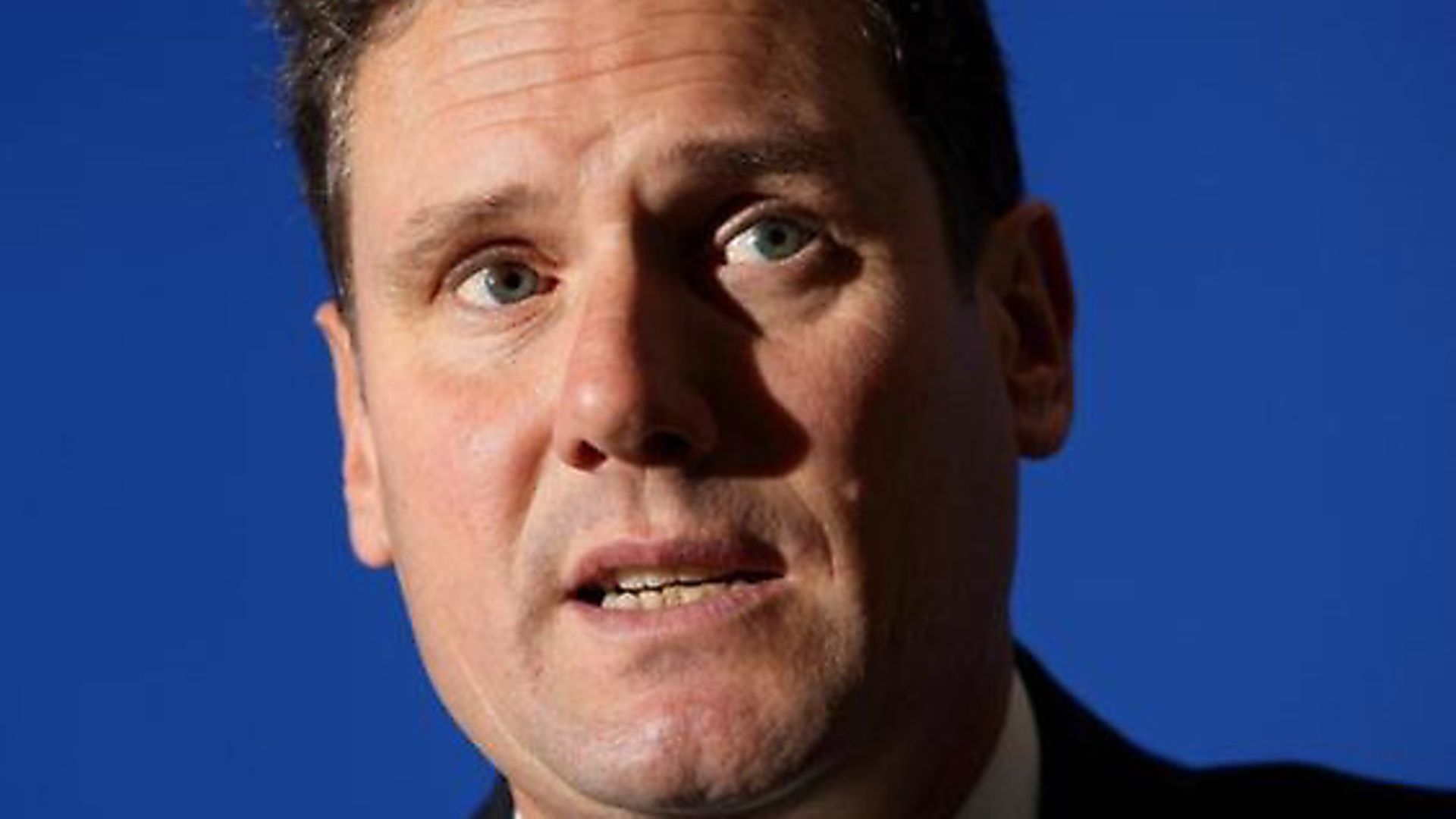
Characterised as a hero of the 48%, Keir Starmer is the country’s most powerful critic of the current Brexit strategy.
Since his barnstorming Commons performance in his first outing at the despatch box as the official Brexit watchdog, Keir Starmer has been characterised as a hero of the 48%.
But after years in public life he is agile in closing that one down, claiming he has been characterised in all sorts of ways over the years and that he has ‘never welcomed or not welcomed them’.
But he also acknowledges the praise which has been lavished on him since he took up his first shadow cabinet post – that of shadow secretary of state for exiting the European Union – with a headline-grabbing 170 questions for the government.
It was certainly a statement of intent that he plans to take on his opposite number in forensic fashion.
‘People were crying for somebody to say to the government ‘not so fast’, you cannot proceed unchallenged on a basis which could be catastrophic for this country. What I am attempting to do is to check the government every step of the way,’ he said.
He is at pains to make it clear that he is not just a figurehead for the 48% who voted to remain – but also the 52% who voted Brexit.
‘I think one of the greatest concerns I have is that the government is seeking to extrapolate from the votes of the 52% what it thinks was uppermost in their mind when they were voting.
‘It is completely ignoring the 48% and not acting in the national interest. When we have a divide of this magnitude, the job of government is to bring the country together, not seek to divide it further.’
He acknowledges that immigration and freedom of movement were a ‘central issue’ in the referendum – but says it is ‘near on impossible’ to extrapolate what percentage of the ’52’ had that issue uppermost in their mind.
‘Many will have been swayed by the suggestion that leaving the EU would mean £350m more a week for the NHS. To put as a priority in the negotiations an extrapolation of what some of the ’52’ might have been thinking at the expense of the rest of the 52pc and the other 48pc altogether is the wrong way to proceed.’
Starmer – or officially Sir Keir – comes to the Commons with a huge amount of experience.
He won’t bite with a response to former cabinet minister Iain Duncan-Smith who described him as a ‘second-rate lawyer’ – claiming he is not the slightest bit concerned.
The human rights barrister – who had a staunch Labour upbringing that began when his parents named him after the party’s founder, Keir Hardie – has certainly dealt with many tricky cases during his five-year term heading the Crown Prosecution Service.
Among them the death of news-vendor Ian Tomlinson in the G20 protests in 2009, phone hacking and terrorism. He also drew up prosecution guidelines on assisted suicide, crimes on social media and child sexual exploitation.
He is equally neutral on the role that Jeremy Corbyn must play in holding the government to account over Brexit.
‘Jeremy Corbyn is leader of the Labour Party. He has appointed me to the role of shadow secretary of state for exiting the European Union, as you would imagine I am working closely with him,’ he said.
The Holborn and St Pancras MP was part of the shadow ministerial exodus in the summer, following the referendum result.
But he showed his willingness to return to service after Jeremy Corbyn’s second victory last month, tweeting: ‘Congratulations Jeremy. Well ran Owen. Now it’s time to pull together and focus on the challenges ahead.’
Since then he has been to Brussels, where he met council members, commissioners and representatives from the parliament.
Their interpretation of the prime minister’s party conference speech is that Britain intends to leave the single market and the customs union, and Starmer said that was the basis on which they were operating.
He claims that it is ‘highly unusual’ for a British Prime Minister, after security of the defence of the realm, not to put the economy first.
‘The fact that the PM is proceeding on the basis that immigration is the key priority, not the economy, is to get the priorities completely wrong.’
If Labour was in charge they would have ‘different priorities in the process’, he says.
His return to the frontbench has given Labour something to cheer about.
Annabelle Dickson is a political journalist, based in Westminster.









